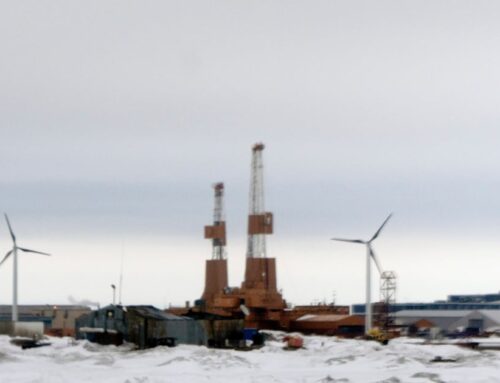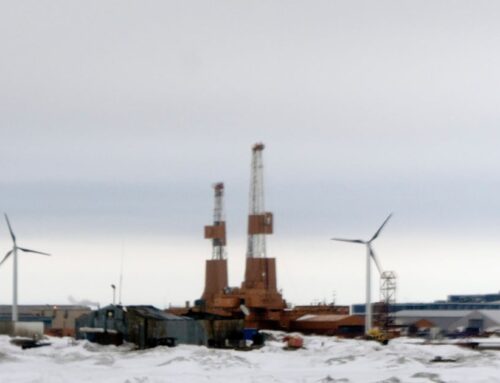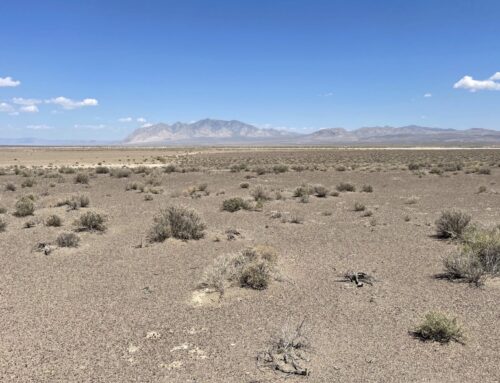AAPL leader discusses changing role of landmen in energy industry
October 10, 2025
Julie Woodard, upcoming president of the American Association of Professional Landmen (AAPL), talks about evolving role of landmen with technology advances and renewable energy rise.
By:
Scott Mitchell
Julie Woodard, senior first vice president of the American Association of Professional Landmen, sat down to discuss how the profession has evolved amid advances in technology, the rise of renewable energy, and growing global demand. Woodard, who will become the organization’s national president next year, reflected on her career, the importance of ethics in the field, and how landmen continue to play a vital role in energy development.
Q: The new Paramount series “Landman,” starring Billy Bob Thornton, has sparked a lot of conversation. How accurate is the show’s portrayal of your work?
A: “What the show depicts is not all wrong. There are some similarities, but you have landmen that work in-house at companies, like operators — I work for Expand Energy, previously Chesapeake — doing exploration and production work. Then you have landmen that work in the field in a variety of capacities. The character on the show is similar to what we do — they’re the negotiator, kind of the key in the middle of everything trying to get a project from conception to reality. Obviously, it’s Hollywood and it’s sensationalized and exaggerated in parts, but there are a lot of truths to it.”
Q: For people unfamiliar with the field, what’s the difference between surface rights and mineral rights?
A: “When a company, an operator, is going to develop and drill a well, they have to have the right to do that. You have to understand who owns both the surface and the minerals. You have to have rights to traverse that surface and rights to traverse the subsurface. So a landman goes in and does the work on the front end to figure out who owns it and then secure the agreements and rights to do that.”
Q: So sometimes the surface and mineral owners aren’t the same people?
A: “Not necessarily. And we have a lot of stakeholders. You have landmen that specialize in one or the other or both. On my team, we have a surface team and an exploration and production team that negotiates with mineral owners. We also have surface agents who work with surface owners to get the right-of-ways and surface use agreements we need.”
Q: Has the “Landman” series led to more interest in your profession?
A: “Absolutely. It’s definitely drawn awareness. Even people who have known what I do for a long time have asked, ‘Oh, is that really what you do?’ And no — it’s not exactly. From what I understand, the show is fact-based to some degree, inspired by real experiences landmen have had. The degree to which they show it on TV is exaggerated, of course. But depending on where you work, you never know who you’ll deal with — anything from local landowners to pro sports team owners who happen to own minerals.”
Q: Did your association, the American Association of Professional Landmen (AAPL), work with Paramount on the series?
A: “Yes, and the show in general. In fact, I think season one has at least one scene filmed at our headquarters in Fort Worth. In season two, several of our staff are extras in it. We’ve been in communication and have a relationship there.”
Q: How has the role of a landman changed since you started your career?
A: “Absolutely, it’s changed. I started in 2004 right out of school working for Chesapeake Energy. I was an in-house landman, not in the field. Technology has changed drastically — and so has the industry. We’re now expanding to include a variety of different energy sources to meet global needs. We have a global problem, and the industry is evolving to address that.”
Q: How did horizontal drilling change the landscape of the industry?
A: “It changes everything about how you prepare. Drilling vertically versus horizontally — your ability to capture more resources more efficiently with less footprint is huge. It changes the entire layout of development plans and every negotiation.”
Q: What about renewables — is that affecting the profession?
A: “Yes. The land profession in general now includes renewables. I work for a natural gas company, but several years ago, AAPL expanded the definition of landman to include renewable energy. We’ve created curriculum and certificates to equip members to work in areas like wind, solar, and carbon capture. We’re also expanding into the data center realm because it’s becoming a big part of energy infrastructure.”
Q: Have you seen more women entering the field since you began?
A: “I think so. When I started, there were fewer females at our company and in university programs. That’s increased over time. AAPL has always had a decent split of men and women, and we have a lot of great leaders, both male and female.”
Q: You’ll soon lead AAPL as national president. What are your priorities moving forward?
A: “AAPL recently joined the Ham Institute’s AI and Energy Initiative, which is a first step in making sure we have a seat at the table as energy policy evolves. Affordable, clean, reliable energy doesn’t come easily to everyone across the world, so that’s our mission — to ensure landmen are part of the solution. We’re expert negotiators, innovators, problem solvers and relationship builders. That relationship piece is critical to the success of these projects, and I think landmen are the perfect professionals to help see them across the finish line.”
Search
RECENT PRESS RELEASES
Related Post




